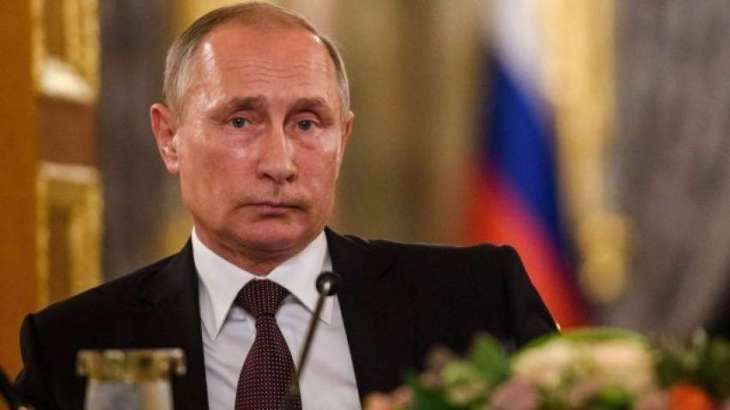Ussian President Vladimir Putin outlined on Wednesday his proposals for changing the country's pension system, which are now expected to be formalized as amendments to the relevant bill and submitted to the Russian lower house.
MOSCOW (Pakistan Point News / Sputnik - 30th August, 2018) Russian President Vladimir Putin outlined on Wednesday his proposals for changing the country's pension system, which are now expected to be formalized as amendments to the relevant bill and submitted to the Russian lower house.
On July 19, the Russian State Duma adopted in the first reading a bill on changes to the pension law. The bill proposed raising the retirement age from 60 to 65 years for men and from 55 to 63 years for women. The changes were expected to be implemented step-by-step starting from 2019. The lower house has so far approved basic provisions of the document, with the deadline for the submission of amendment proposals expiring on September 23.
In his video address to the nation, Putin spoke about the need to change the existing pension system and proposed to set retirement age at 60 for women and 65 for men.
He stressed that the issue of changing the country's pension legislation was urgent and warned that any delays would be just irresponsible.
"Our inaction now or adoption of temporary 'cosmetic' measures would be irresponsible and dishonest in relation to both the country and our children ... In the long term, if we show indecision now, it may jeopardize the stability of society, and therefore the security of the country. We must develop. We must overcome poverty, ensure a decent life for the people of the older generation - both today's and future pensioners," the president underlined.
He also suggested establishing measures guaranteeing employment opportunities for people of pre-retirement age and introducing administrative or even criminal liability for employers over firing such employees.
"I have told you about the current state and proposals for the sustainable development of the pension system in our country in an extremely objective, detailed and absolutely sincere manner. I will stress once again that we have to make a difficult but necessary decision. I ask you to take this with understanding," Putin said when summarizing his address.
Valery Ryazansky, the head of the Russian upper house's committee on social policy, said that the Federation Council would support the president's proposals and the relevant amendments will be reviewed by the end of the year.
Following the president's address, Sputnik talked to experts who gave their assessments of the announced proposals.
Yury Gorlin, the deputy director of the Institute for Social Analysis and Forecasting of the Russian Presidential academy of National Economy and Public Administration, welcomed Putin's proposal to soften the government's initial plan and set the retirement age of 60 years for women instead of originally planned 63 years.
"I believe that it is a very positive measure, one of the most proper ones, so to speak. Because we in our studies stated that, taking into account all the factors � demographic ones, life expectancy, the chances to live up to [the retirement age] and the employment opportunities � it is prohibitively high to increase the retirement age for women above 60 [years]," Gorlin indicated.
Dmitry Kulikov, an expert of the research and forecasting group at the ACRA analytical credit rating agency, told Sputnik that that the pension law changes proposed by the Russian president would help to decrease the share of retirees in the country to 23 percent by 2034, which, in turn, would enable increases in pensions.
According to Kulikov, the changes in the pension legislation might also encourage economic growth due to the higher number of the working population and the growing life expectancy.
Lt. Gen. Evgeny Buzhinsky, a former Russian Defense Ministry official, in turn, explained that the amendments to the pension legislation would not affect the country's servicemen as their retirement age is determined in a separate law.
Thus, the law allows retirement of military personnel after 20 years of military service. Depending on military title, the maximum term of service is 55 years for colonel, 60 years for lieutenant and 65 years for colonel general.




